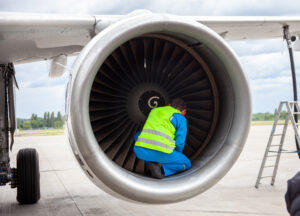THE AMERICAN WAY TO FLIGHT COMPENSATION: A COMPARATIVE ANALYSIS WITH THE EU261 REGULATION.
Have you got a question?
UNDERSTANDING THE NEW U.S. DOT (DEPARTMENT OF TRANSPORTATION) MANDATE ON IMMEDIATE FLIGHT COMPENSATION.
Last 24th of April 2024, the Biden-Harris Administration announced that the U.S. Department of Transportation (DOT) has issued a final rule that basically requires air carriers to promptly provide passengers with automatic cash refunds when owed.
This pivotal move – which will become effective on June 25, 2024 – aims at enhancing consumer protection in air travel, making simpler and more straightforward for whoever traveling to, from, or within the United States —whether on foreign or domestic carriers— to receive automatic and full refunds in cases where airlines cancel or significantly change flights, considerably delay checked baggage or neglect to deliver additional services purchased.
REFUND ENTITLEMENTS AND CONSUMER PROTECTIONS UNDER THE DOT REGULATION: A BRIEF DIVE
REFUND ENTITLEMENTS AND CONSUMER PROTECTIONS UNDER THE DOT REGULATION: A BRIEF DIVE.
It’s evident that this regulation encloses various scenarios, each deserving of a brief explanation:
Cancelled or significantly changed flights: Passengers qualify for a refund if their flight is cancelled or significantly changed and they do not accept alternative transportation or travel credits offered. In these cases airlines are also required to provide prompt notifications to consumers of their right to a refund of the ticket and extra service fees, as well as any related policies.
To aid readers’ understanding, a “significant change” occurs when: a) the departure or arrival times are delayed by more than 3 hours domestically and 6 hours internationally; b) the flight departs from or arrives at a different airport than scheduled; c) passengers are downgraded to a lower class of service (this includes flights on different planes that are less accessible or accommodating to a person with a disability).
– Significantly delayed baggage return: Passengers who submit a report for mishandled baggage will be eligible for a refund of their checked bag fee if their baggage is not delivered within 12 hours after their domestic flight arrives at the gate, or within 15-30 hours after their international flight arrives at the gate, varying according to the flight duration.
– Extra services not provided: Passengers will be entitled to a refund for the fee they paid for an extra service — such as Wi-Fi, seat selection, or inflight entertainment — if an airline fails to provide this service.
– Government or medical restriction to flight due to serious communicable diseases: In such cases, airlines are required to issue travel credits or vouchers, which must be transferable and remain valid for at least five years from the date of issuance.
Companies are now required to provide a registered email address and specify their intended future activities in the confirmation statement. If you need guidance ensuring compliance with the revised disclosure requirements, then you should seek advice.
COMAPRATIVE SYSTEMS: EU261 AND DOT REGULATION.
Even if the EU Regulation 261 (EU261) embraces similar scenarios (flight delays, cancellations, or denied boarding when traveling within, to, or from the European Union) there are some differences with the DOT Regulation which are worth be explained.
First of all the right of compensation – which amount rages from €250 to €600 according to the flight distance – is not always automatic under the EU261 and could be neglected when an exceptional circumstance, beyond the control of the air carrier, is proved.
A schematic but not exhaustive list of these events is provided by the regulation itself under (14) of the “Whereas” (i.e. “political instability, meteorological conditions incompatible with the operation of the flight concerned, security risks, unexpected flight safety shortcomings and strikes that affect the operation of an operating air carrier”) and implemented by Court’s Judgments all over Europe
However, even if an exceptional circumstance occurs – and this surely reflects what’s stated in the DOT Regulation – EU261 obliges airlines to offer assistance such as meals, refreshments, accommodation, full refund of the unused tickets or free reprotection flight.
This basically shows that the European legislator has a greater inclination towards balancing the rights of passengers and airlines, always recognizing basic rights to the first (again: meals, refreshments, accommodation etc.) and, on the other hand, granting the right of a proper defence to the latter (i.e. proving the exceptional circumstance).
IMPLICATIONS AND POSSIBLE OUTCOMES OF THE “AMERICAN WAY” TO FLIGHT COMPENSATION.
The need for airlines – both American and international – to comply with the strict standards imposed by the new DOT directive will bring about a substantial change in their corporate structures.
How will this change occur?
Carriers will be compelled to review and strengthen their Customer Care Services to ensure passengers receive prompt responses to their flight-related needs and timely reimbursement of owed compensations.
This may entail the need to implement automated systems for managing passenger requests and expedite compensation processes, even in the face of massive and simultaneous claims.
Furthermore, carriers will be called to revise and re-draft their Terms & Conditions in a more passenger-friendly manner, as well as enhance their communication policies in order to ensure passengers are promptly informed of their rights and available options in the event of flight disruptions.
In addition to economic challenges, carriers may also be exposed to predatory legal actions which may pose a significant burden to their financial and operational risks.
In summary, as passengers become more aware of their rights and entitlements under the new regulation, Airlines will have to face significant investments and a comprehensive review of their operational practices, all of it in a strict span of time.
Now the crucial question: Will all of these investments grant a return in terms of passenger trust and ensure the long-term sustainability of the aviation sector?
-
Aviation House, 125 Kingsway
London WC2B NH
United Kingdom
- (+44) 020-3051-5060
Book a call back
Share this article
Got a question?
Please complete this form to send an enquiry. Your message will be sent to one member of our team.
Related posts

How understanding are employers obliged to be of menopausal symptoms?
Menopause is a natural change in women, which can result in a range of debilitating physical and/orpsychological symptoms such as headaches, hot flushes,

Shipbuilding: Innovative Technologies for a Sustainable Future
Maritime transport can be considered a fundamental pillar of the global economy; however, its environmental impact raises significant concerns.

Wallentin-Hermann vs Alitalia
Maritime transport can be considered a fundamental pillar of the global economy; however, its environmental impact raises significant concerns.

Unplugged: How Labour’s reforms may impact your evenings
In today’s hyper-connected world, where many employees have email and instant messaging on their mobiles, the boundaries between work and personal life are



